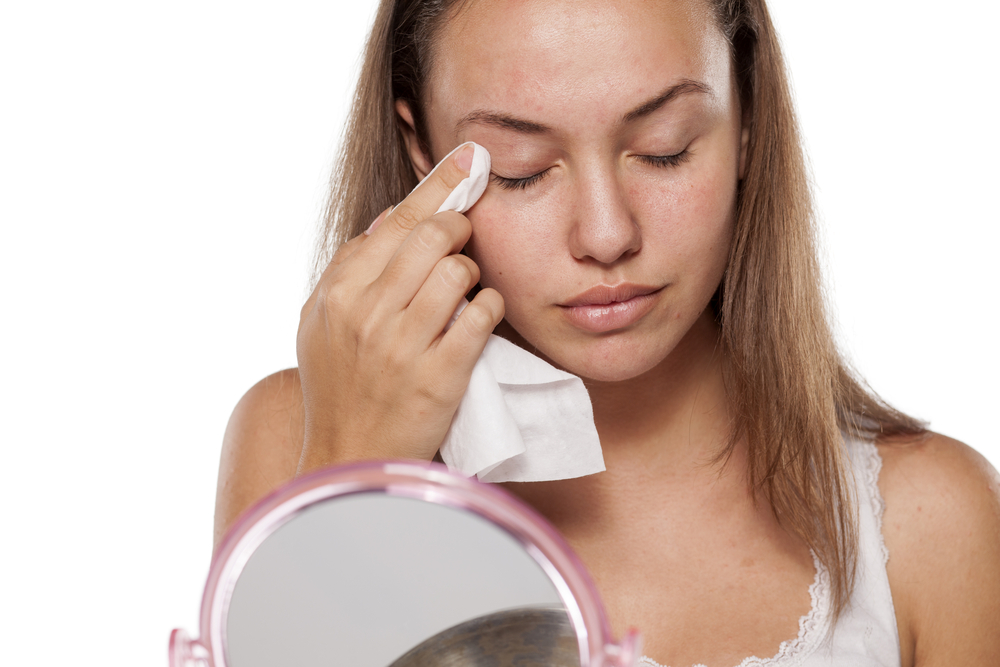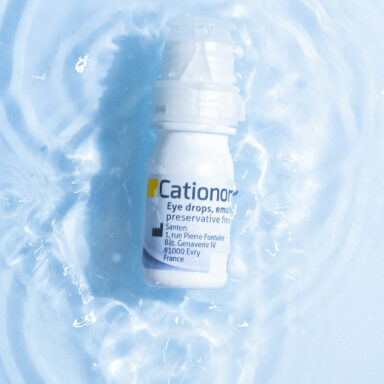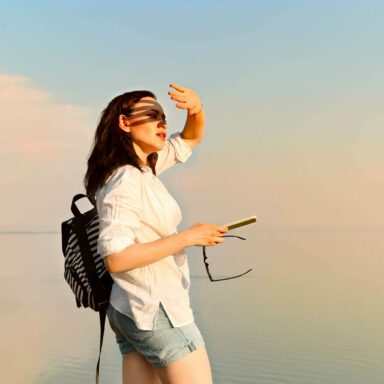Summer should be a time for feeling the sand between your toes, not feeling like it’s in your eyes. But unfortunately, for many people the tell-tale gritty, itchy feeling of dry eyes can rear its head in the hot weather and dry winds of summer.1
Dry eye is a condition where your eyes don’t produce enough tears, or the tears are of poor quality which can make eyes look red and feel irritated (and sometimes watery too!).1
Luckily, there’s no need to hide behind sunglasses all summer. Read on to learn more.
Does hot weather cause dry eyes?
Instinctively, we all know that heat dries things out – that’s why we put clothes on the washing line on a sunny day. But, when it comes to our eyes, the answer is a little more nuanced.
Hot weather can cause dry eyes: Eye dryness in hot weather happens because the increased temperature cause tears to evaporate more quickly and if your body can’t make enough to replace them, your eyes become dry.2
But, heat can help dry eyes too: It can help open the meibomian glands – the tiny glands on the eyelids that release oils to lubricate the eyes and prevent tears from drying up.3
What’s more, if you’re someone who spends more time outdoors in warmer weather, you may find that the break from looking at a computer screen, reduces dry eye symptoms.3,4
Did you know?
In a study of people with dry eye, just over half said summer exacerbated their dry eye symptoms.4
Causes of dry eyes in hot weather

While high temperature is one of the more obvious causes of dry eyes during summer, there are some other triggers you may not have thought of:
Air conditioning
Places with low humidity, such as air-conditioned offices, can be hotspots for dry eye as the body produces fewer tears in a dry climate and the tears evaporate much quicker.5
BBQs and bonfires
Smoke and dust particles, like those from grills and fire pits, can irritate eyes and make dry eye feel worse.5
Swimming
Chlorine in pools can wash away the tear film, the mix of oil, water and mucus that lubricates your eyes. Try to use goggles to avoid red itchy eyes.5
UV
It’s important to wear sunglasses (Look out for the CE and BS EN ISO 12312-1:2013 quality marks!) and a hat to protect your eyes from the sun’s harmful UV rays – sunburned eyeballs are painful and make dry eye feel worse.6,7,8
Did you know?
Sand can reflect 10-15% of the sun’s rays, meaning that even if you are sitting in the shade, your skin – and eyes – could be burned.9
Dry winds
In a study, wind was the most commonly reported weather condition to impact dry eye symptoms (for 71%), followed by sunshine (60%) and heat (42%).4
Top tip
Going somewhere humid like Miami in Florida? Some experts speculate that pollen and mold in these climates can be worse for dry eye than the temperature!3
Do allergies cause dry eyes?
Dry eye and eye allergies can often be confused because they share many of the same uncomfortable symptoms, however they have different underlying causes.10

Confusingly, you can have dry eye and an eye allergy at the same time, so if you have especially itchy eyes in summer and spring, you may have both. Untreated allergies can also lead to dry eye and make dry eye feel worse.10
Common allergens include:10,11
- Pollen
- Dust
- Pet dander
- Mold
- Smoke
- Exhaust fumes
- Perfume
The most noticeable symptoms of an eye allergy is itchiness, but you may also notice swollen eyelids, puffy under-eye circles, redness (from itching), sensitivity to light, and watery eyes.10 On the other hand, while dry eyes can also look red and feel itchy and be sensitive to light, you might notice more of a scratchy feeling like something is in your eye and they are less likely to be swollen.10,12 Find out more in our blog post Is it hay fever or dry eye?
Top tip
If you have both allergies and dry eyes, be cautious when taking antihistamines as they can make dry eye symptoms worse.11
How to manage dry eyes in summer

Here’s our top tips for how to keep your eyes sparkling like (hopefully) the sunshine!
Use protection
Wraparound sunglasses are the best choice because they provide extra coverage and protection from the sun, wind, and dry air.13
Stay hydrated
Dehydration can make dry eye worse, try to keep a bottle of water on you when you’re out and about. Aim for at least 8-10 glasses of water each day.14
Use eye drops
Also known as artificial tears – eye drops such as Cationorm® can replenish your body’s supply of tears, rehydrate and quickly relieve the discomfort of dry eyes.15
Try a warm compress
This can help soothe dry eyes by releasing the oil from the oil glands and promoting tear production.15
Use a humidifier
These add moisture to the air so can help your tears evaporate more slowly, meaning your eyes stay moist for longer.13
Get help
Ask your optician, ophthalmologist, GP or pharmacist for help if your symptoms don’t start to get better or if you are in a lot of pain. It’s important to seek a diagnosis of dry eye from a healthcare professional as, left untreated, it can cause vision problems and, in severe cases, permanent damage.12
Can dry eyes in summer be treated?
The good news is, yes – it’s easy to treat dry eyes in summer! The most common treatment are artificial tears, a type of eye drop, which help lubricate dry eyes and keep moisture on the outer surface of your eyes. You don’t need a prescription for these, and you can even get them online.16

As well as using the tips listed in this article, you should also try to:17
- Clean your eyelids every day
- Take regular breaks from digital screens
- Adjust your computer screen so it’s just below eye level
- Take a break from wearing contact lenses (if you use them)
- Moderate or limit how much alcohol you drink
- Stop smoking if you’re a smoker
Talking to your pharmacist can be a good idea. They can advise you on how to clean and protect your eyes and if you should see an optician or GP.17
If you still don’t get some relief, make an appointment with an eye doctor, such as an ophthalmologist or optometrist, who can check your eyes and advise you on other treatment options.17




